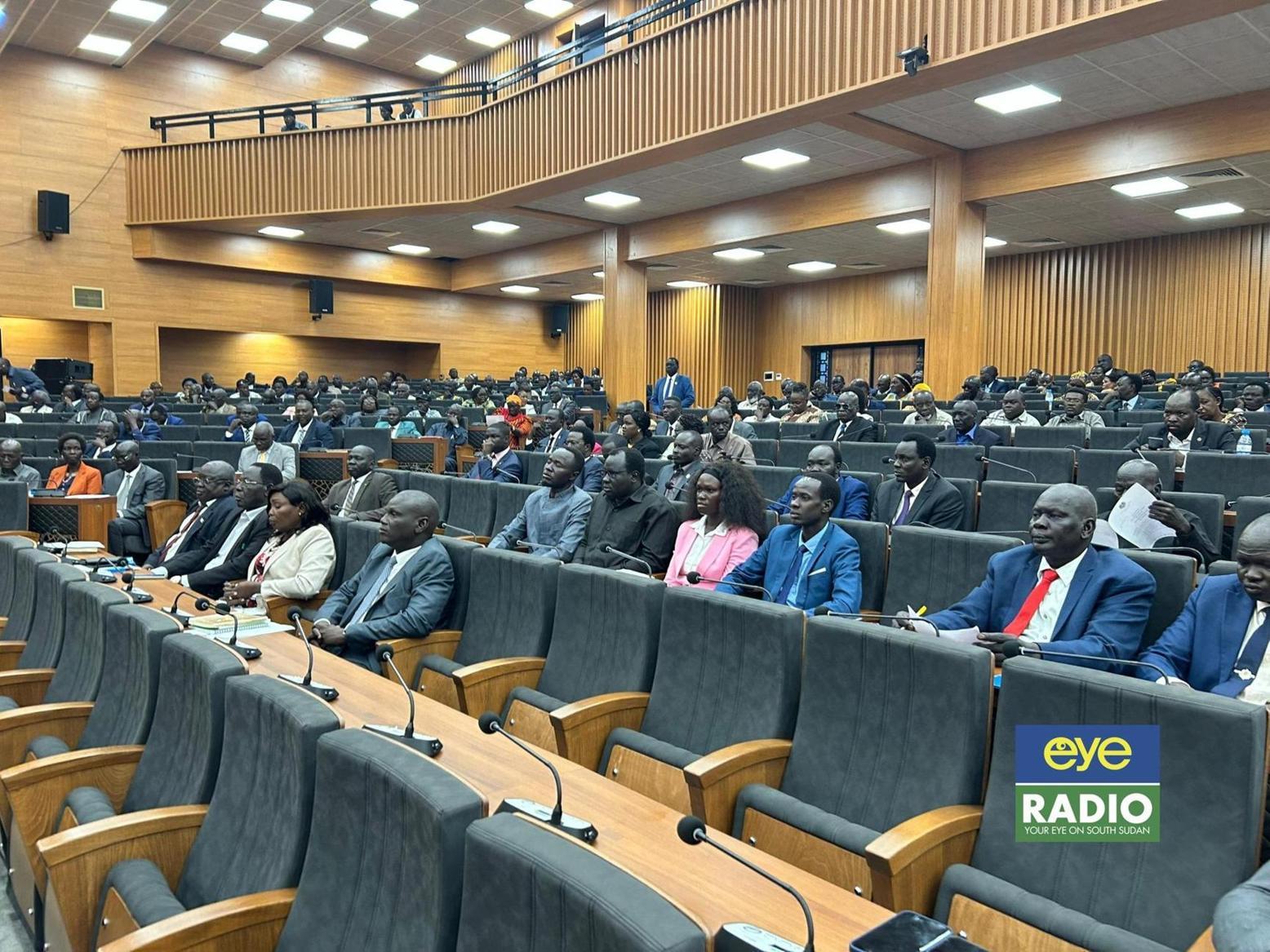Africa-Press – South-Sudan. A leading civil society activist is calling on South Sudan’s leadership to urgently reopen the national parliament to facilitate the timely passage of the 2025-2026 national budget.
This appeal comes amidst growing concerns that delays are damaging the nation’s image and credibility within the East African Community (EAC).
Edmond Yakani, Executive Director of the Community Empowerment for Progress Organisation (CEPO), emphasized the critical importance of budget compliance for South Sudan’s standing in the regional bloc.
Speaking to Eye Radio on Sunday, June 15, Yakani highlighted that the timely enactment of the budget is essential for meeting EAC requirements and fulfilling financial obligations, including vital subscription fees that ensure the country’s membership remains functional.
“One of the concerns I would like to bring to the attention of our leadership is our compliance with the timely enactment of our national budget for the financial year 2025-2026,” Yakani stated.
“As we speak, our national parliament has not yet reopened to undertake the budgetary process… This means a huge harm on us, on our image, to our status as a member state of the East African Community.”
Yakani further stressed that the failure to adopt the budget in time reflects poorly on South Sudan’s standing, especially as other EAC member states have already presented their respective budgets.
He also pointed out that South Sudan’s proposed budget remains the smallest among East African countries, a factor that severely limits the nation’s capacity to fund crucial development projects, particularly during its post-conflict reconstruction phase.
Budget inadequacy and regional comparison
This concern about the budget’s sufficiency was echoed by policy expert James Boboya, who noted that the proposed 2025-2026 budget would not be enough for meaningful development.
Boboya warned that such a reduction in real terms would have serious negative consequences for the country’s overall progress.
South Sudan’s Ministry of Finance and Planning has proposed a 5.2 trillion South Sudanese Pounds budget for the 2025-2026 fiscal year, which Boboya notes is equivalent to approximately USD 1.15 billion.
Meanwhile, Finance Ministers from other EAC countries have already presented their considerably larger budgets for the upcoming fiscal year:
Kenya presented a budget of USD 18-20 billion, primarily focusing on revenue-raising measures, while Uganda proposed a USD 20 billion budget, prioritising oil and gas activities and infrastructure development.
Meanwhile, Tanzania unveiled a USD 21 billion budget, aiming to strengthen revenue collection and electronic security systems.
Rwanda has introduced a USD 4.8 billion budget, emphasising healthcare, agriculture, construction, and education. Notably, Rwanda increased its national budget by 21 per cent through new tax measures, a stance divergent from Kenya, Uganda, and Tanzania, which generally slowed down on new taxes.
And finally, Burundi presented a budget of USD 1.77 billion. These comparisons highlight the stark disparity in financial resources available to South Sudan compared to its regional counterparts.
Call for urgent action
Reiterating his appeal, Yakani, speaking as a civil society activist and President of the East African Civil Society, called upon South Sudan’s leadership “in your various capacities to speed up the enactment of our national budget for the financial year 2025-2026.”
He underscored that this action is directly tied to the reopening of parliament, which should primarily focus on passing the budget to ensure South Sudan’s compliance with EAC standards.
For More News And Analysis About South-Sudan Follow Africa-Press






